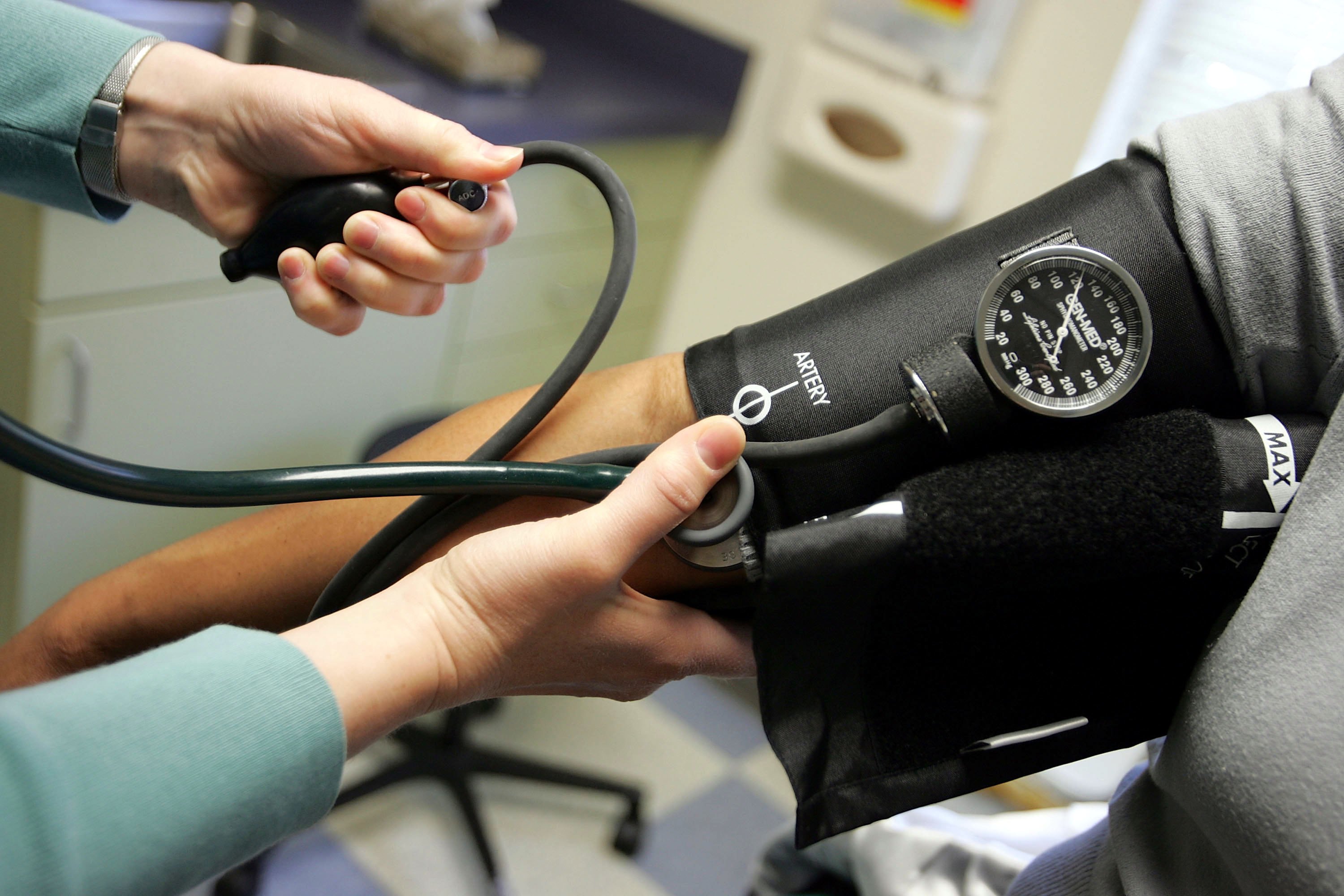'Lifesaving' blood pressure study recommends even lower benchmarks

A free daily email with the biggest news stories of the day – and the best features from TheWeek.com
You are now subscribed
Your newsletter sign-up was successful
Lowering blood pressure below the current recommended benchmarks could significantly decrease the risk of heart attack, heart failure, stroke, and death, a new study by the National Heart, Lung and Blood Institute revealed Friday. The study's release comes a year ahead of schedule because federal health officials declared it had revealed "potentially lifesaving information."
In what NPR calls the largest study ever conducted, researchers examined the systolic blood pressure of 9,300 men and women over the age of 50 to find out if lowering it below the current recommended goal would be beneficial. The results: A resounding yes. The New York Times reports:
"The study found that patients who were assigned to reach a systolic blood pressure goal below 120 — far lower than current guidelines of 140, and 150 for people over 60 — had their risk of heart attacks, heart failure, and strokes reduced by a third and their risk of death reduced by nearly a quarter." [The New York Times]
About one-third of adults in the U.S. have high blood pressure, The New York Times reports. The new study is expected to reshape guidelines for addressing high blood pressure in the future and will likely result in even lower target benchmarks. "This is a very big deal," Mark Creager, president of the American Heart Association told The New York Times. "I believe that this study will serve as a roadmap towards saving a significant number of lives."
The Week
Escape your echo chamber. Get the facts behind the news, plus analysis from multiple perspectives.

Sign up for The Week's Free Newsletters
From our morning news briefing to a weekly Good News Newsletter, get the best of The Week delivered directly to your inbox.
From our morning news briefing to a weekly Good News Newsletter, get the best of The Week delivered directly to your inbox.
A free daily email with the biggest news stories of the day – and the best features from TheWeek.com
-
 How the FCC’s ‘equal time’ rule works
How the FCC’s ‘equal time’ rule worksIn the Spotlight The law is at the heart of the Colbert-CBS conflict
-
 What is the endgame in the DHS shutdown?
What is the endgame in the DHS shutdown?Today’s Big Question Democrats want to rein in ICE’s immigration crackdown
-
 ‘Poor time management isn’t just an inconvenience’
‘Poor time management isn’t just an inconvenience’Instant Opinion Opinion, comment and editorials of the day
-
 Nobody seems surprised Wagner's Prigozhin died under suspicious circumstances
Nobody seems surprised Wagner's Prigozhin died under suspicious circumstancesSpeed Read
-
 Western mountain climbers allegedly left Pakistani porter to die on K2
Western mountain climbers allegedly left Pakistani porter to die on K2Speed Read
-
 'Circular saw blades' divide controversial Rio Grande buoys installed by Texas governor
'Circular saw blades' divide controversial Rio Grande buoys installed by Texas governorSpeed Read
-
 Los Angeles city workers stage 1-day walkout over labor conditions
Los Angeles city workers stage 1-day walkout over labor conditionsSpeed Read
-
 Mega Millions jackpot climbs to an estimated $1.55 billion
Mega Millions jackpot climbs to an estimated $1.55 billionSpeed Read
-
 Bangladesh dealing with worst dengue fever outbreak on record
Bangladesh dealing with worst dengue fever outbreak on recordSpeed Read
-
 Glacial outburst flooding in Juneau destroys homes
Glacial outburst flooding in Juneau destroys homesSpeed Read
-
 Scotland seeking 'monster hunters' to search for fabled Loch Ness creature
Scotland seeking 'monster hunters' to search for fabled Loch Ness creatureSpeed Read